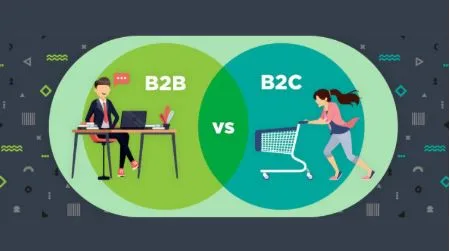The Future of Enterprise CRM: AI Agents, Predictive Insights, and More
In the last decade, Customer Relationship Management (CRM) has evolved from a basic contact database into an essential nerve center for enterprise operations. But today, we’re on the verge of another transformation—powered by AI, automation, and predictive intelligence.
The modern enterprise CRM is no longer just about storing data; it’s about making that data work for you in real time. With the integration of AI agents, predictive insights, and intelligent automation, businesses are shifting from reactive customer service to proactive, hyper-personalized customer engagement.
Here’s a look into what’s shaping the future of CRM for large-scale enterprises—and what businesses must adopt to stay ahead.
1. AI Agents as the New Workforce
AI agents are quickly becoming indispensable members of the enterprise workforce. These agents are capable of handling tasks that traditionally required human intervention—ranging from qualifying leads and scheduling meetings to suggesting sales actions based on customer behavior.
For example, a sales AI agent can monitor how prospects interact with your website, score them based on behavior, and nudge your sales team to take action when a lead shows buying intent. These agents can work 24/7 without burnout, learn from every interaction, and improve over time.
They’re not replacing human teams—they’re making them smarter and more efficient.
2. Predictive Insights for Smarter Decisions
Predictive analytics is one of the most game-changing features of next-gen CRMs. By leveraging historical data, machine learning, and behavioral trends, predictive CRM can forecast everything from customer churn to future purchases.
Imagine knowing which customers are likely to stop using your product next month—or which accounts are most likely to upgrade. This foresight allows teams to focus efforts where they matter most, increasing ROI and reducing wasted effort.
Marketing teams can use predictive models to create segments that are more likely to convert. Sales teams can prioritize leads based on conversion probability. Support teams can identify accounts that need proactive outreach before an issue escalates.
This shift from “what happened?” to “what will happen?” is a game-changer for enterprise decision-making.
3. AI Email Assistants and Communication Automation
In today’s fast-paced enterprise environment, communication efficiency is everything. AI-powered tools are stepping in to draft, personalize, and optimize communication at scale.
An AI email assistant can draft emails in seconds—tailored to the recipient’s profile, recent activity, and tone preferences. Whether it’s a follow-up message, an upsell opportunity, or a customer support reply, AI ensures it’s relevant, timely, and consistent with your brand voice.
Beyond drafting, these assistants can suggest subject lines, identify the best send times, and even A/B test variations to maximize open and response rates.
For enterprises handling hundreds of emails daily across departments, this kind of automation reduces manual workload and ensures quality communication—every time.
4. Hyper-Personalization Across Touchpoints
Today’s customers expect more than just transactional interactions. They want to be understood. They want relevant recommendations, timely offers, and seamless experiences across channels.
Enterprise CRM of the future is making hyper-personalization a reality. By aggregating data from multiple channels—website, mobile app, social media, email, in-store purchases—CRMs build unified customer profiles.
These profiles allow businesses to tailor every interaction, from product recommendations to support responses. For example, a customer browsing winter jackets online might receive an SMS about a new collection at a nearby store, while their email inbox shows accessories that match their preferences.
Personalization isn’t a nice-to-have anymore—it’s the expectation. AI ensures it’s delivered at scale.
5. Voice and Conversational Interfaces
Voice-powered interfaces are set to redefine how enterprise users interact with CRMs. Instead of typing and navigating through dashboards, teams will simply ask:
“Show me this quarter’s top-performing sales reps” or “Remind me to follow up with the Johnson account tomorrow.”
Thanks to advancements in natural language processing (NLP), these interactions are becoming more natural and accurate. Conversational AI will enable faster access to insights, reduce learning curves for new users, and improve CRM adoption across departments.
Moreover, customer-facing bots will use voice and chat to resolve queries in real-time, book appointments, or even guide buyers through product selection.
6. Integrations and Open Ecosystems
The future of CRM doesn’t live in isolation. Enterprise CRMs are becoming platforms that connect with every tool in the tech stack—whether it’s marketing automation, ERP, HRMS, or customer support software.
APIs and no-code/low-code integrations will allow teams to customize workflows without IT bottlenecks. Want to send customer data from your loyalty app to the CRM and trigger a personalized reward email? Done. Need to sync invoice history from your accounting software? Simple.
An open ecosystem ensures your CRM is not just a database—but the command center of your enterprise.
7. Data Privacy and Ethical AI
With great power comes great responsibility. As CRMs gather and use more data, privacy and ethics must be at the forefront.
Future-ready CRMs will come equipped with built-in compliance tools for regulations like GDPR, HIPAA, and CCPA. More importantly, ethical AI practices—like transparency in decision-making and bias prevention—will become standard.
Enterprises must ensure that while personalization and prediction improve, customer trust is never compromised.
8. Real-Time Dashboards and Adaptive Intelligence
Traditional dashboards show what’s already happened. Future CRMs will go further—they’ll adapt in real-time, highlight anomalies, and even suggest actions.
Imagine a sales dashboard that not only shows pipeline status but also flags deals at risk, suggests possible objections, and recommends the best time to call. Or a marketing dashboard that pauses underperforming campaigns automatically and shifts budget to higher-performing ones.
This level of adaptive intelligence will turn data into decisions—and decisions into action—at lightning speed.
Final Thoughts
The future of enterprise CRM is not just about managing relationships—it’s about predicting behavior, automating intelligently, and personalizing at scale. It’s about transforming how businesses interact with their customers and how teams collaborate internally.
From AI email assistants to real-time predictive dashboards, the innovations happening in this space are poised to make enterprises more agile, customer-centric, and data-driven.
One thing is clear: enterprises that embrace this evolution won’t just improve their CRM processes—they’ll reshape the very way they do business.





